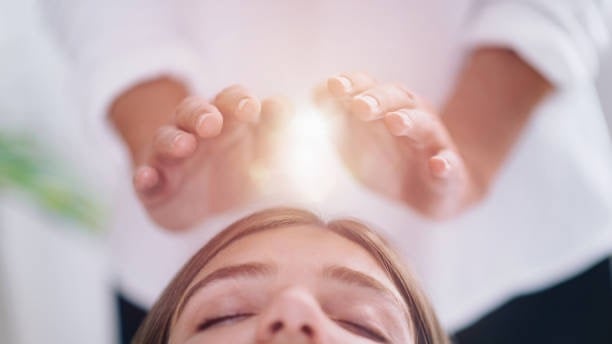Understanding Reiki: A Holistic Approach to Healing
Reiki Healing
reconnectingwithyourinnerself.com
1/29/20242 min read


Reiki is a hands-on healing method that has gained popularity as a relaxation and stress-reduction technique, promoting overall well-being.
Reiki is a gentle, hands-on healing practice that invites the body and soul into deep relaxation and restoration. More than a technique, it is a sacred space where you are supported in reconnecting with your natural state of balance and wholeness.
The word Reiki comes from two Japanese words: Rei, meaning “Universal” — the spiritual essence that connects all life — and Ki, meaning “Vital Life Force Energy,” the subtle current that flows through every living being. Together, Reiki reminds us that we are never separate from the greater field of life; we are part of it.
While its spiritual roots echo back through ancient traditions of India and Tibet, Reiki was rediscovered in the early 1900s by Mikao Usui. Since then, it has become a pathway for many to experience peace, clarity, and gentle healing.
At its heart, Reiki is based on the understanding that life force energy flows through us and nourishes our physical, emotional, mental, and spiritual well-being. When we experience stress, trauma, or emotional strain, this natural flow can become restricted. Reiki offers a way to soften those blocks and restore harmony — not by force, but through presence and intention.
During a session, you remain fully clothed, resting comfortably while gentle hands are placed lightly on or just above the body. The practitioner serves as a clear and grounded channel for universal life force energy, allowing it to flow where it is most needed. Many people experience warmth, subtle movement of energy, emotional release, or simply a profound sense of peace.
Reiki does not “fix” you — because nothing is broken. Instead, it supports your body’s innate wisdom and natural ability to heal. It works holistically, addressing the whole person rather than isolated symptoms, creating space for deep inner alignment.
The benefits often reach beyond the physical. Recipients commonly report:
Deep relaxation
Reduced stress and anxiety
Emotional clarity
Improved sleep
A greater sense of connection and inner calm
Reiki is a complementary practice and works beautifully alongside conventional medical care. It does not diagnose or replace treatment but gently supports the body, mind, and spirit in returning to balance.
Ultimately, Reiki is an invitation — an invitation to slow down, to receive, and to remember your connection to the source of oneness that flows through all life. In that remembrance, healing unfolds naturally.
reconnectingwithyourinnerself.com

D R E A M
I M A G I N E
C R E A T E
B E L I E V E